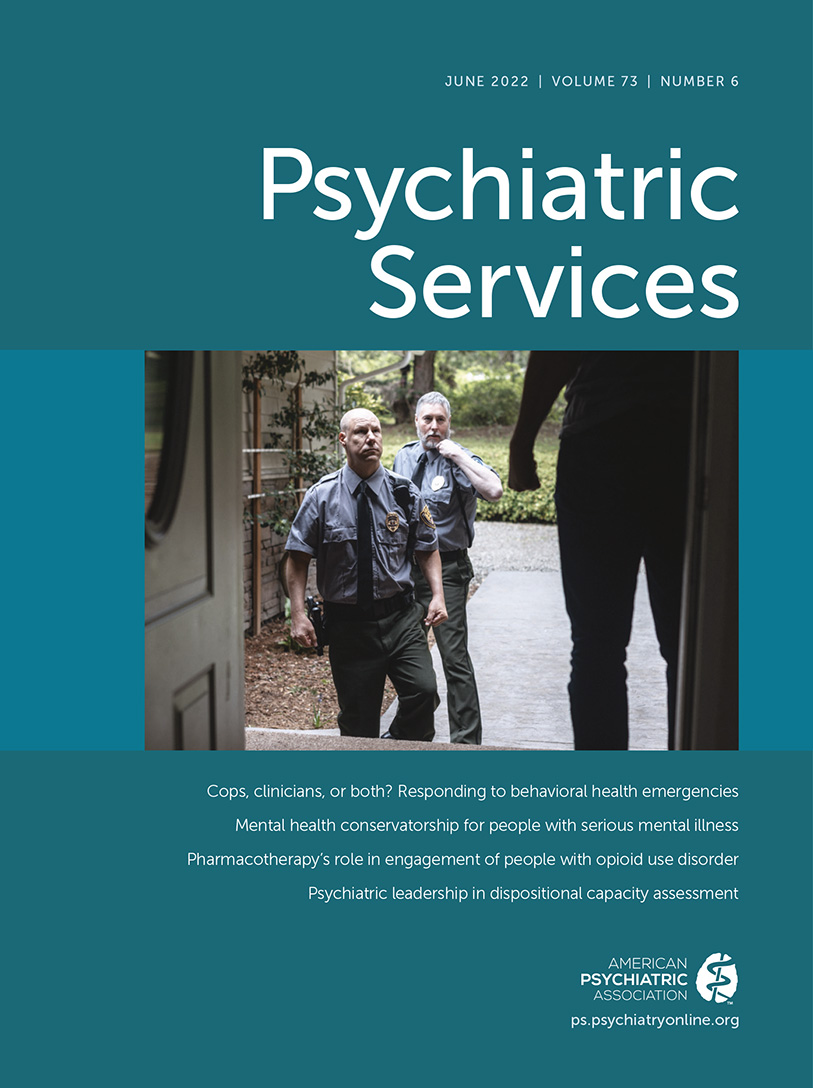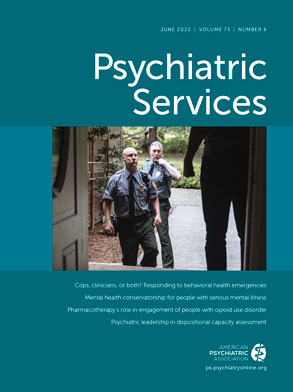In “Cops, Clinicians, or Both? Collaborative Approaches to Responding to Behavioral Health Emergencies,” Balfour and colleagues (
1) call for systems coordination among the behavioral health system (including the mental health and substance use services systems), general health care system, and law enforcement to improve crisis response for people experiencing a behavioral health crisis. With the forthcoming “988” behavioral health crisis line, many communities are implementing crisis response processes and co-response teams, training law enforcement officers, and building relationships among their health care and social services systems. Balfour and colleagues provide a pathway for communities to use in conceptualizing, developing, or enhancing their own crisis response systems. Throughout their article and
From Pages to Practice podcast (episode 48), Balfour and colleagues emphasize engaging in a systems-level approach rather than focusing on developing individual programs. Moreover, they note important guiding principles: to provide care in the safest and least restrictive environment and to quickly respond to individuals in crisis. Correspondingly, law enforcement officers can utilize the crisis response center more easily than local jails, and staff are empowered to creatively problem solve. In this system, many individuals are diverted from jail, emergency departments, and hospitalizations and into care.
However, much of the emphasis in crisis system development has been on the “front door” of crisis response, with less attention focused on postcrisis intervention services. Effective services, such as care coordination and linkage, after a crisis encounter and for those returning to the community from a hospital, crisis unit, or detox facility can extend periods of stability. Additionally, an effective crisis response system will likely identify individuals in need who do not require intensive services. The population of those in subacute crisis presents an opportunity for alternate engagement and outreach strategies, including the use of peer support workers and prevention services to connect people with behavioral health and social support services to prevent future crises. These coordinated approaches in developing a crisis response system must also directly address issues of racial and economic equity to reduce and not enhance the health disparities that currently exist within behavioral health and criminal legal systems.
This movement toward crisis system coordination coincides with—and has the potential to enhance—other related multisystem collaborative efforts between behavioral health and criminal legal system stakeholders. Locally, communities are using the sequential intercept model as a framework to develop ways to reduce criminal legal involvement for individuals in need of treatment. A coordinated crisis system is an integral part of the broad community-based services system, also called Intercept 0 or the Ultimate Intercept. It can prevent potential criminal legal system involvement for more people in crisis and do so earlier than traditional crisis management, and it can connect people with community-based services. The national Stepping Up Initiative also encourages community leaders to commit to reducing the prevalence of mental illness in jails through education and technical assistance. However, these collaborative efforts too often wind up focusing on implementing individual programs rather than on building a coordinated systems approach, and they rarely draw from a shared set of principles to guide systems coordination.
We agree with Balfour and colleagues in calling for systems-level coordination as an approach to behavioral health crises and agree that access to individual-level and systems-level data is an essential building block of such coordination. Data are necessary for monitoring system processes and outcomes and can inform evidence-based policies and practices. Data use and sharing agreements can facilitate cross-systems collaboration (i.e., law enforcement and jails sharing information with the behavioral health system) by highlighting gaps in systems and the ways people move between systems, but we caution against using this systems-level data as a measure of individual outcomes or to track individuals.
Ultimately, a data-informed, coordinated systems approach will uncover “upstream” social factors that negatively affect health and mental health—factors like poverty, a lack of affordable and safe housing, racism and discrimination, and exposure to trauma and other adverse events. This is difficult work that moves beyond an emphasis on individual treatment program development or implementation to developing a multisystem response to broad, complex, and intertwined social issues. It also demands broader social policies that promote public health and well-being for all.

